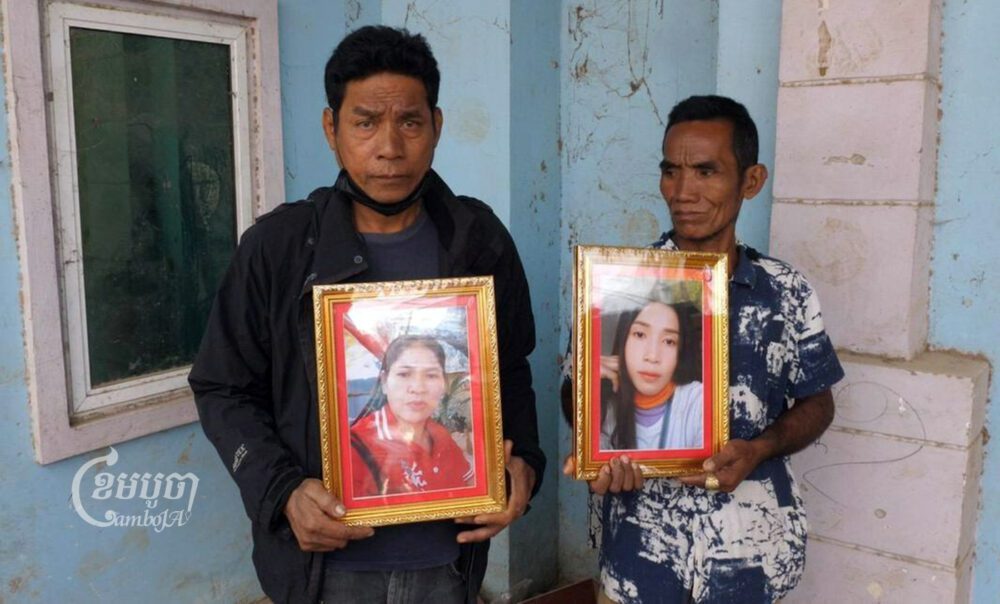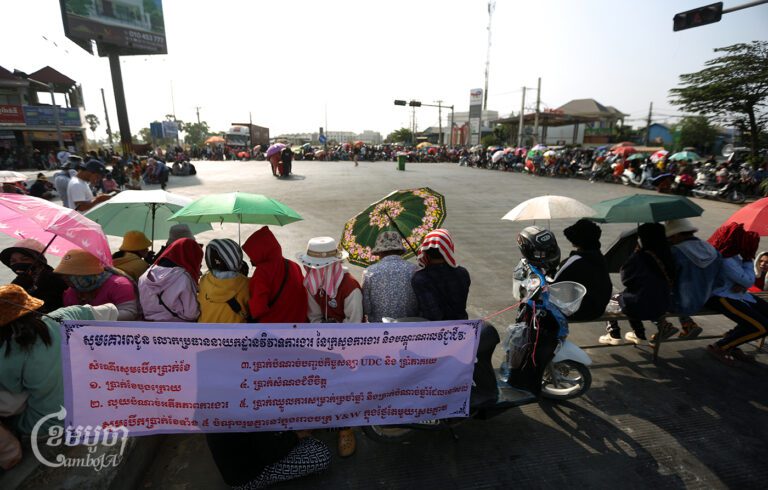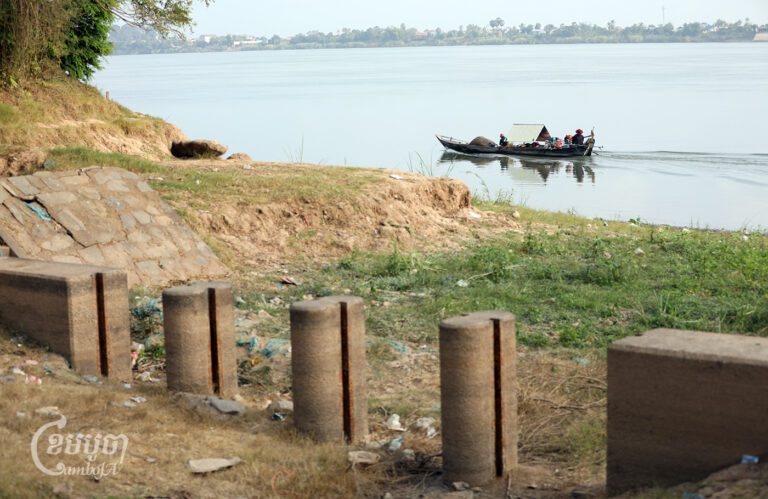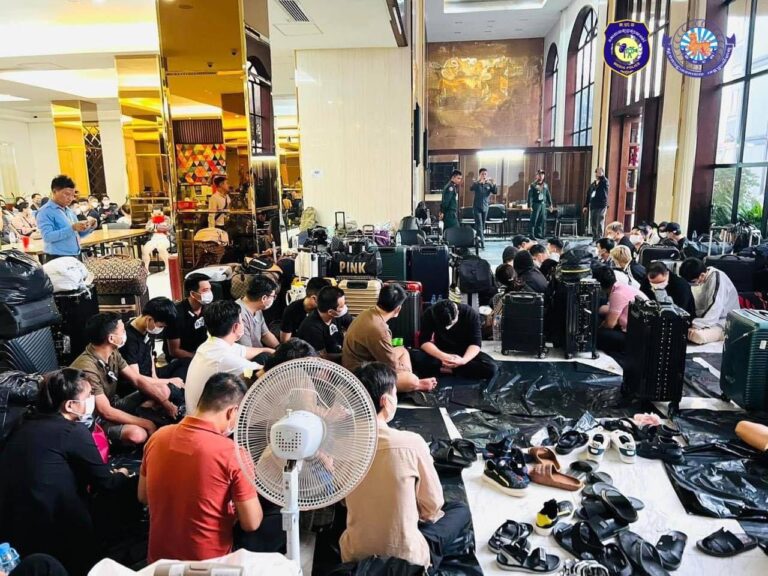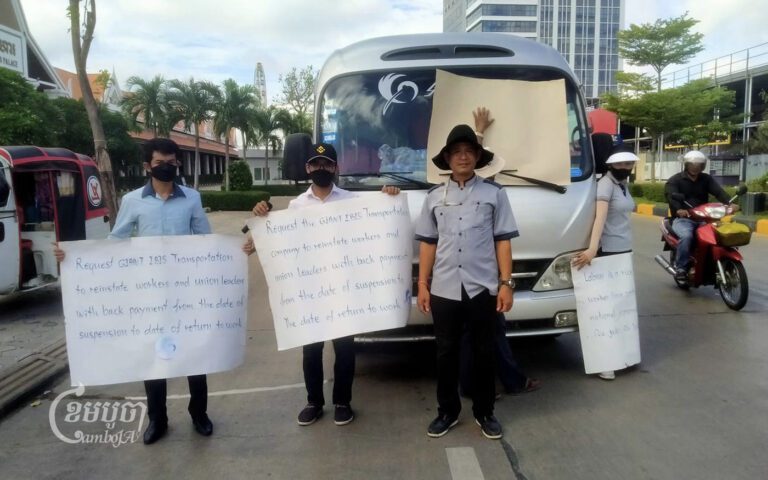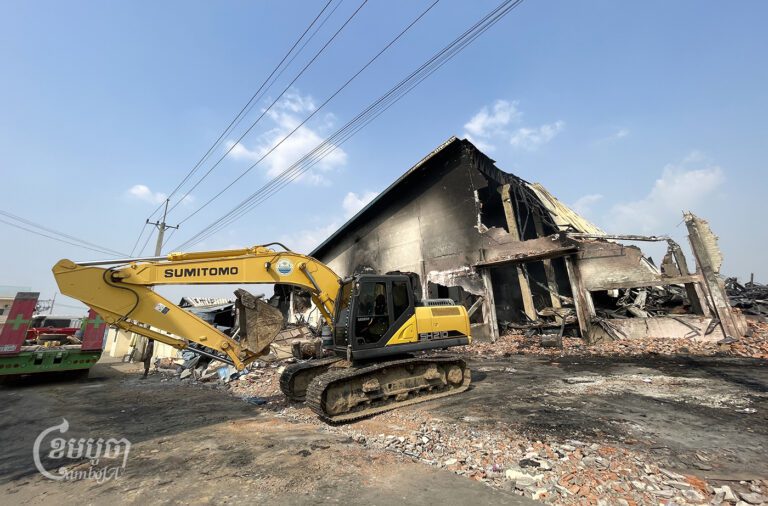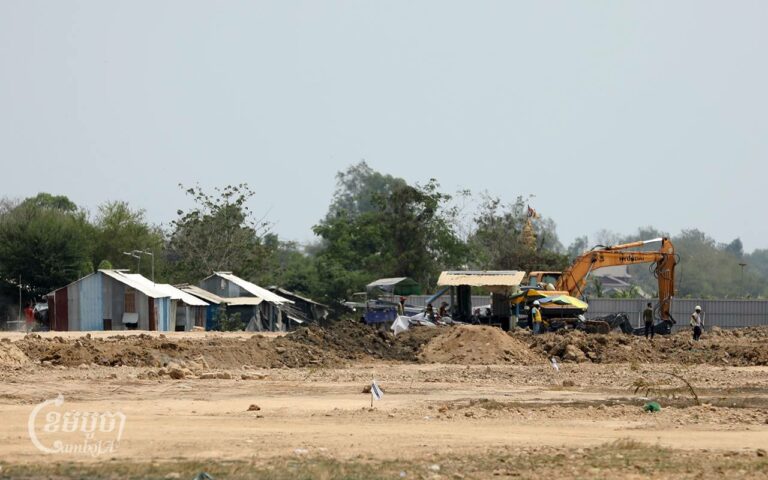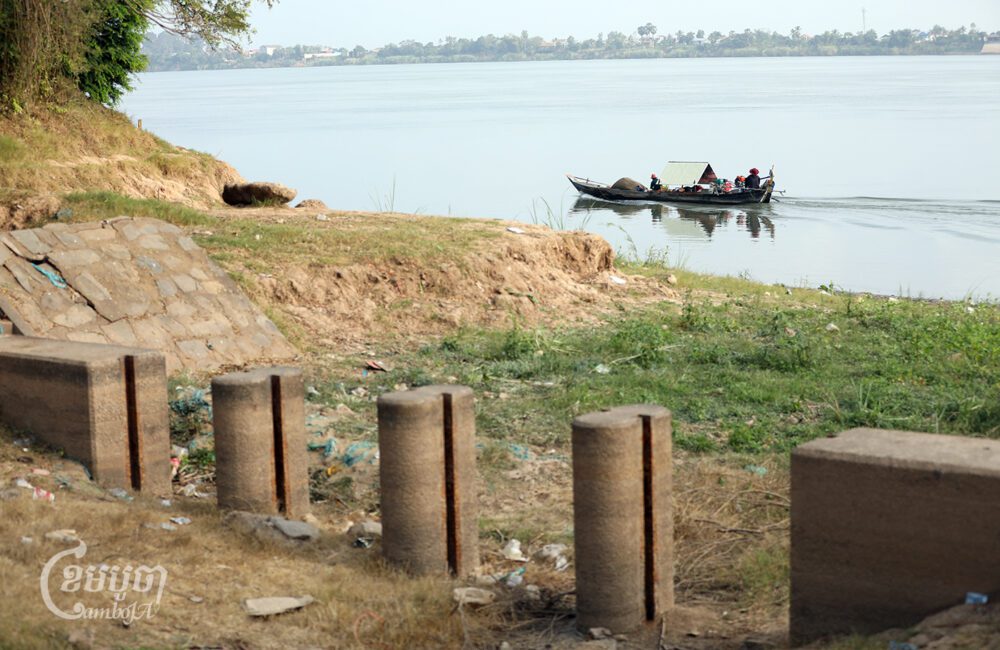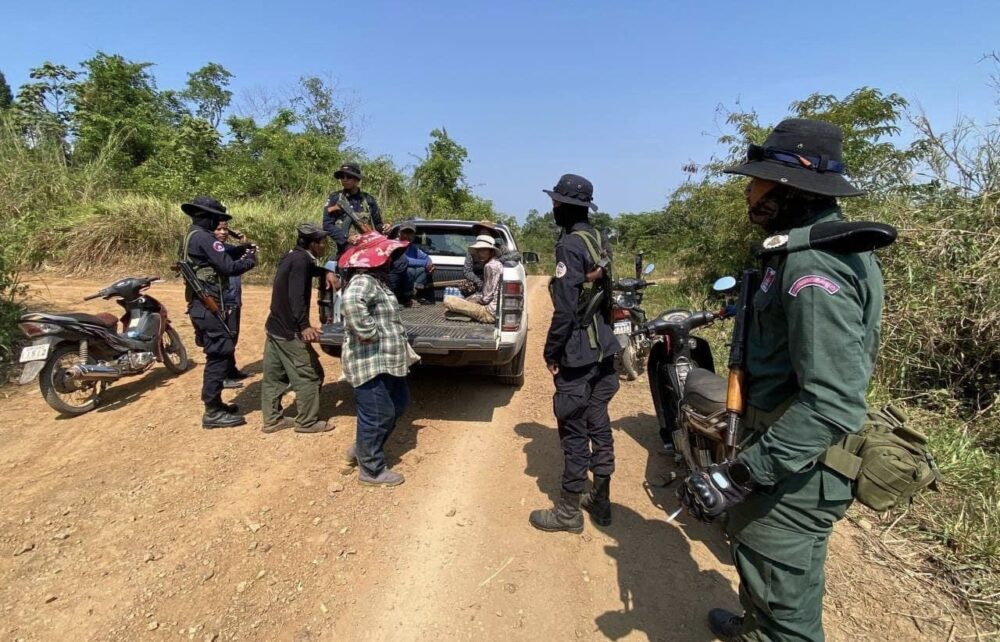Authorities have claimed no Cambodians died in the blaze which engulfed a Poipet casino in late December, but the relatives of one Khmer woman trapped in the building at the time of the fire have already held her funeral.
Heang Bunnoeun said he commemorated the possible death of his sister-in-law, Oeur Thy, in the presence of three monks to offer solace to the family. She was a 41-year-old widowed mother of seven who had worked as a cleaner at the Grand Diamond City hotel and casino before it was consumed in an electrical fire on the evening of December 28, 2022.
“There was no corpse and there was no flower in front of the coffin,” Bunnoeun said. “I hope she returns one day.”
Two weeks after the fire began and authorities confirmed at least 26 deaths and 57 injuries following a 39-hour Thai-Cambodian joint rescue operation, Thy’s family and the families of at least two other missing Cambodian workers have still heard nothing about her fate. The families of missing or injured Cambodian workers are also waiting to hear whether authorities will offer any compensation for their loss.
Most of the dead were Thai, but Malaysian, Chinese and Nepali nationals have been reported among the casualties by Cambodian authorities, who have stated repeatedly that no Cambodians died or were injured in the fire.
But Cambodian authorities said on Tuesday that six bodies remain unidentified and are awaiting DNA testing in Thailand.
Thai authorities have reported four Thai nationals remain missing, according to Banteay Meanchey provincial police chief Sith Luos. Cambodian authorities said they did not know the total number of Cambodian workers reported missing, but noted they had received multiple reports from families.
“I can’t tell you whether there have been any Cambodian workers dead or not,” Luos told CamboJA on Tuesday. Previously, he had claimed no Cambodians died in the fire.
The lack of clarity has frustrated families of missing workers. After the fire started, Bunnoeun searched for his sister-in-law for two days, including traveling across the nearby Thai border to seek information from authorities and health centers there.
“The Thai side told me that Cambodians who are injured or dead are in Cambodia, but the Cambodian side said [those people] are in Thailand,” Bunnoeun said. “I don’t know which source to believe.”
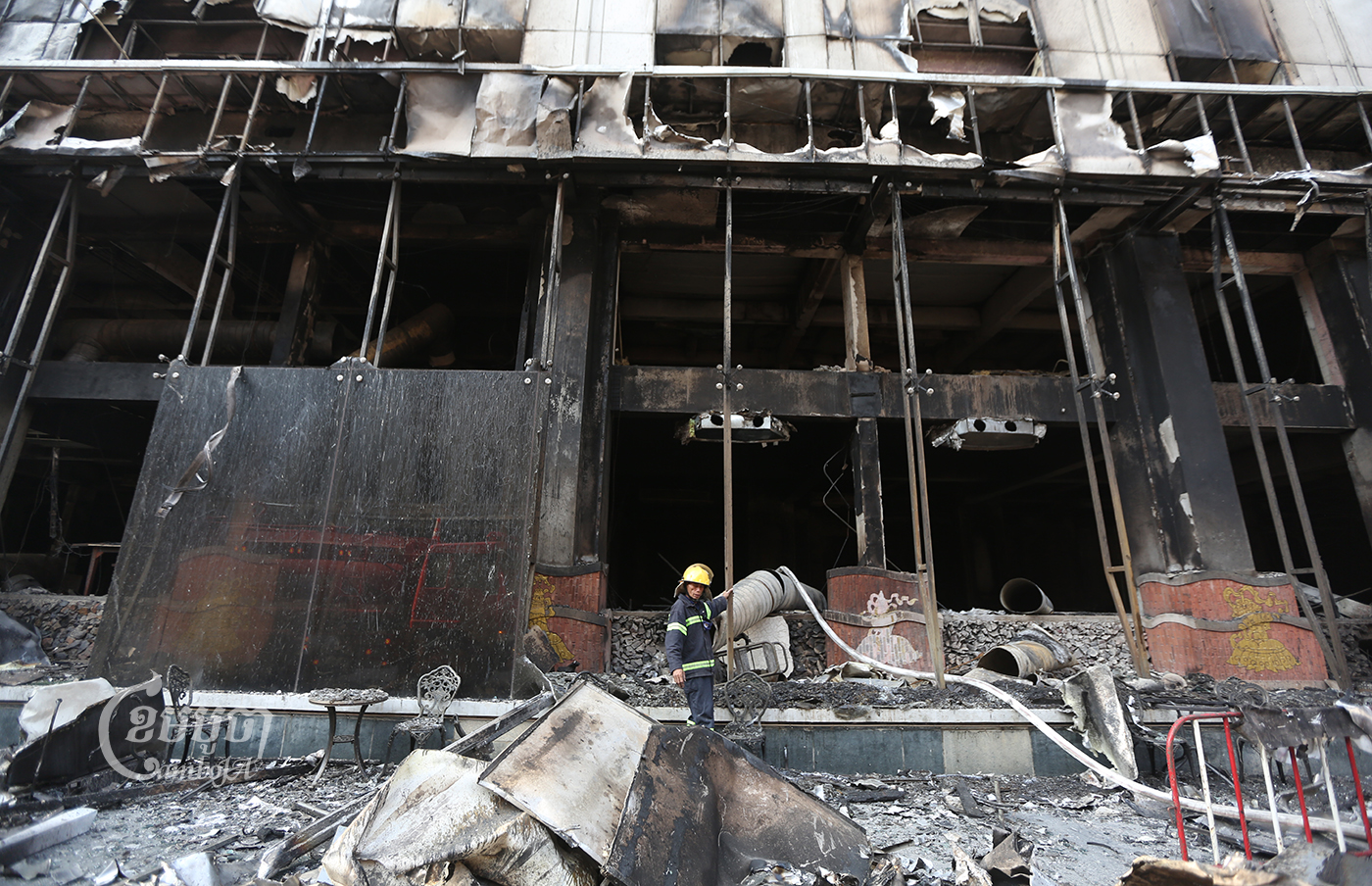
After rescue operations concluded on December 30, Banteay Meanchey governor Oum Reatry posted on his Facebook page: “There are no Cambodians dead or injured…”
“They [authorities] tend to know nothing and they just tell me there are no Khmer people dead in the casino building,” Bunnoeun said. “I am so speechless and don’t know what to say because the casino is located in Cambodia and they said there are no Khmer dead.”
Bunnoeun filed a complaint a few days after the fire to provincial authorities seeking information.
Banteay Meanchey deputy governor Ngor MengChroun and governor Oum Reatry could not be reached for comment.
An Inter-Ministerial Commission headed by Minister of Interior Sar Kheng, overseeing the demolition of the Grand Diamond City, was also still investigating the remains of six unidentified bodies, according to provincial spokesperson Sek Sokhom.
“Most Khmer workers worked on the first floor, and for those who worked on the first floor no one died, they ran away,” Sokhom said.
Families of workers who died or were injured in the casino fire would be eligible for compensation if they had registered to the National Social Security Fund (NSSF), Sokhom said.
“If they work there and they register for NSSF they will get compensation from the government when they face danger at their workplace,” he said. “But if they work at that casino [Grand Diamond City] and are not NSSF members then they can’t get compensation.”
Soum Chankea, Adhoc coordinator at Banteay Meanchey province said, relatives of workers could file a lawsuit against the company to receive compensation but only if the workers were confirmed dead. He added the casino seemed to lack emergency alarms and fire safety infrastructure such as water sprinklers and fire escapes.
“Because the authorities have claimed there are no Khmer workers dead, so the victim’s families have found it difficult to sue or get the compensation,” Chankea said.
Bunnoeun said that a Grand Diamond Casino representative from Thailand, who did not provide a name or contact, came to give the family 10,000 Thai baht ($299 USD) for funeral expenses and said the company would provide 5,000 Thai baht (about $150 USD) to support Thy’s children for the next three months, Bunnoeun said.
Bunnoeun said he felt Cambodian authorities were dodging responsibility to help families who had lost a wage-earner.
“They have no responsibility about missing people, that’s why they answer me just for an excuse and no solution,” Bunnoeun said, of Cambodian authorities.
Another woman, Keo Vandy said on Tuesday she is still searching for her Cambodian husband Keo Visoth, after spending multiple days waiting outside a pagoda and visiting a local health center in hopes of hearing whether Visoth was dead or alive.
“I have no information about my husband, but I am waiting for the DNA test [to learn] if my husband is dead,” Vandy said.
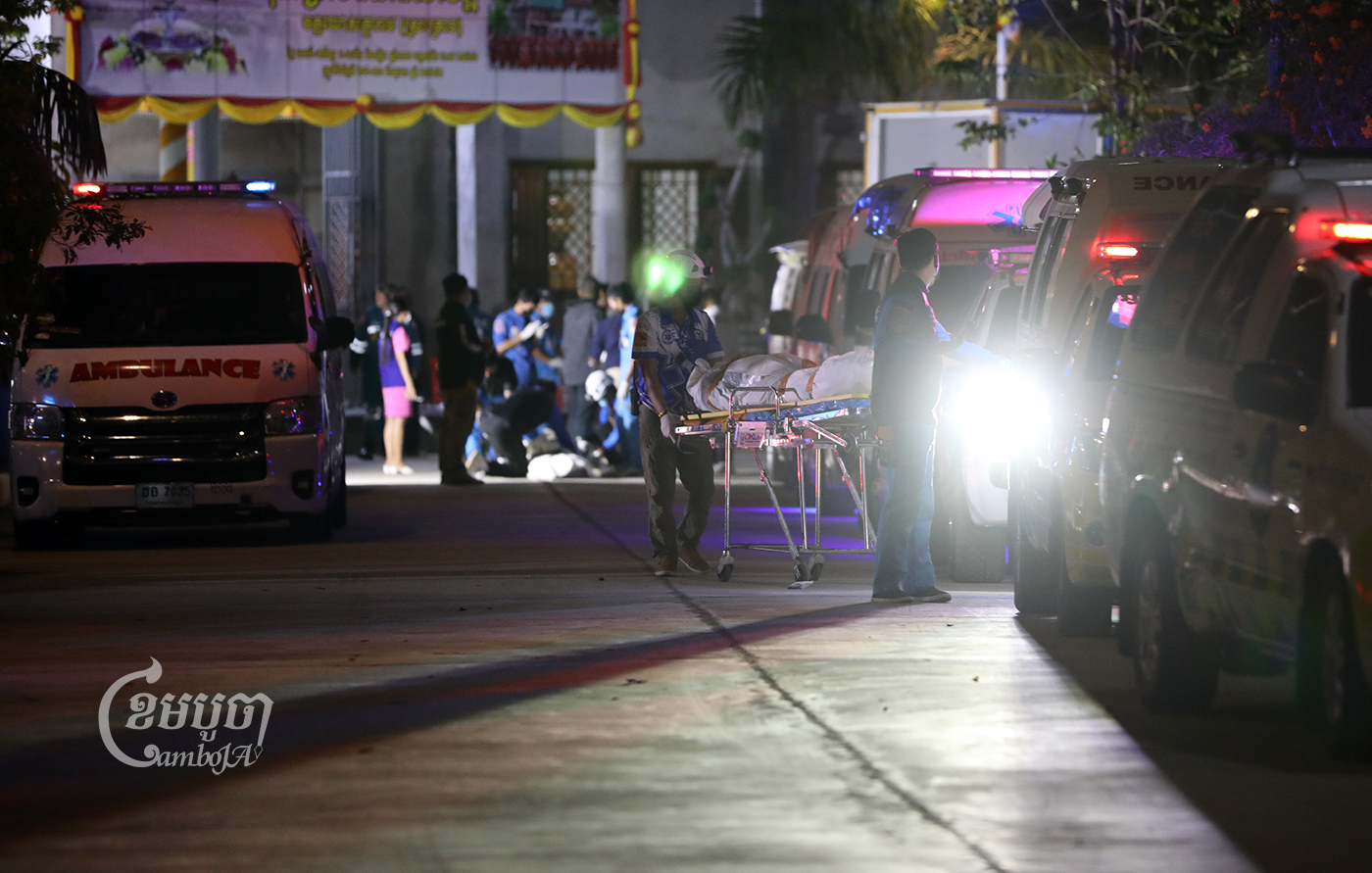
Lacking answers from authorities, Ban Doch consulted a fortune teller, who told him his missing niece Sam Sreymom, 32, was still alive and receiving treatment in Thailand.
“I went to Thailand and saw other Thai people find their relative’s body,” Doch said. “But for me I have not yet found her even though I went to many pagodas and many hospitals.”
Sreymom’s family has received no compensation from authorities or the company and her $200 monthly salary as a cleaner at Grand Diamond City was the family’s only regular source of income, Doch said.
“We are poor and her husband works as a construction worker,” Doch said. “I am trying to find the owner of the company to ask if we can get Sreymom’s salary to support her children.”
While authorities have claimed to not know the owners of the casino, Ministry of Commerce records revealed Cambodian tycoon Ly Yong Phat and several Thai associates listed as directors of a company linked to the casino.
Likewise, another closely connected holding company listed Seoum Sa Im and Mean Veasna, wife of Thai fugitive politician Vatana Asavahame, as directors. Both Veasna and Asavahame are Thai citizens who clandestinely received Cambodian citizenship by royal decree in 2008, months before Asavahame was sentenced to 10 years in prison in absentia in Thailand for corruption.
As the relatives of missing Cambodian workers await information, Bunnoeun said he still believes his sister-in-law may still be alive.
“I think she had a serious injury and has not yet woken up at hospital, it’s just my opinion but I don’t hope much, only 10 or 20 percent,” Bunnoeun said. “It’s so sad, because they [the casino and authorities] have not yet found a solution for me.”


